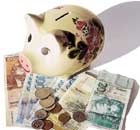Asia-Pacific
1 year in, hope harder to come by, Obama finds
(Agencies)
Updated: 2010-01-21 16:29
 |
Large Medium Small |
There would be no victory lap for Obama on January 20, 2010.
Instead, Republicans spent the day savoring the broader implications of the election in Massachusetts.
House of Representatives Republican leader John Boehner saw it as a powerful manifestation of a political rebellion that has been brewing all year, a backlash against big government, reckless spending and not enough focus on getting Americans back to work.
"Anger is now pointed at us because we're in charge," Robert Gibbs, the president's spokesman, allowed. "And rightly so."
Obama himself owned up to a failure to communicate.
Hopping from crisis to crisis, he told ABC television, "we lost some of that sense of speaking directly to the American people about what their core values are and why we have to make sure those institutions are matching up with those values."
Michelle Obama tried to lighten the tone of the day with a surprise visit to people taking the White House tour.
When one tourist congratulated her on reaching the one-year mark, the first lady gamely responded, "One down."
But a few days earlier, she had spoken to the broader challenge of holding onto hope when so much remains to be done.
Thinking back to her husband's campaign, the first lady said everyone remembers what he said about hope.
"But we forget about all the other stuff he said after that, that it's going to be hard and it doesn't happen overnight," she said. "It's never easy, and we're feeling that right now."
"Do they really get us?"
Obama took office with a sky-high 74 percent approval rating and two-thirds of Americans expecting him to be an above-average, maybe even outstanding, president.
His approval rating is down to 56 percent now, and only about four in 10 people see him as an above-average chief executive.
Other numbers help to explain the slide: Joblessness reached 10 percent from 7.7 percent over the past year; foreclosure notices rose to 350,000 last month from 275,000 a year ago; more than 300 US military personnel have died in Afghanistan in that time.
Much has gone right, though: The Dow Jones industrials average, below 8,000 when Obama took office, dipped to 6,500 last spring but now is back above 10,000. Troop levels in Iraq are down to 111,000 from nearly 140,000 a year ago. With the economy back on firmer footing, banks and automakers have repaid $165 billion of the money the government spent to bail them out.
But Obama, the candidate who was so captivating to Americans a year ago, said people are feeling a "remoteness and detachment" with the technocrats in Washington.
"Do they really get us and what we're going through?" he wondered aloud Wednesday, then framed a more hopeful outlook for Year Two:
"I think that I can do a better job of that, and partly because I do believe that we're in a stronger position now than we were in a year ago."






